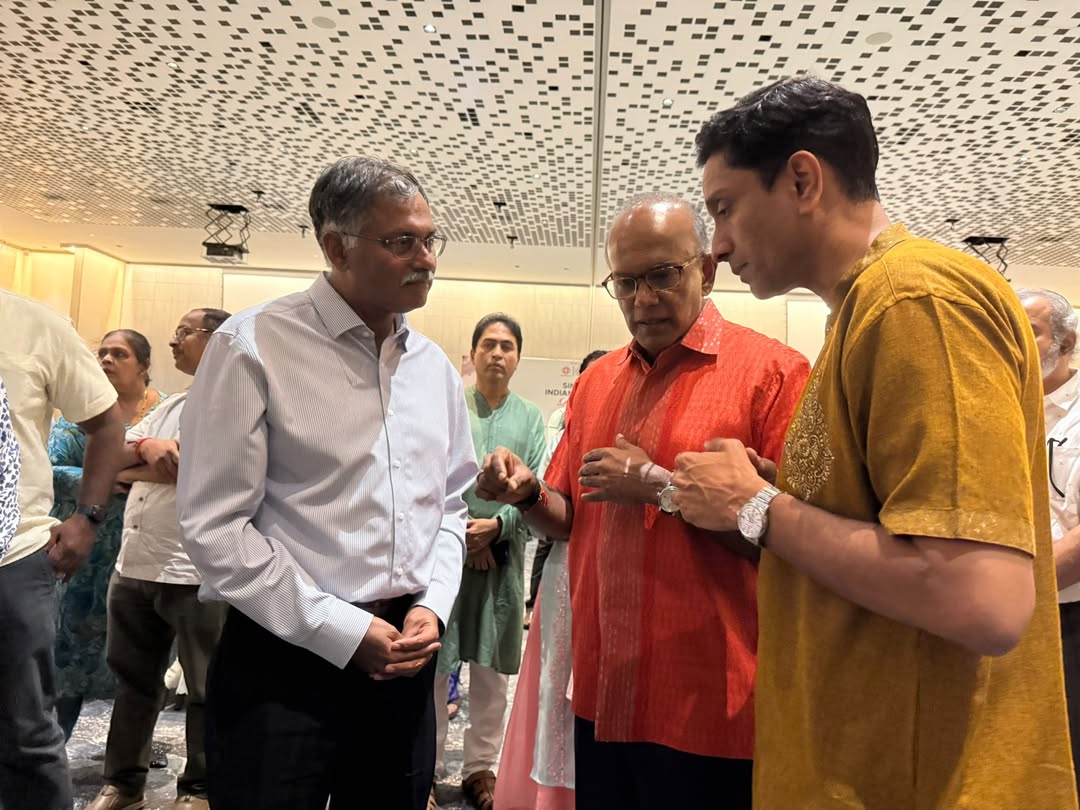A new chapter has begun for Singapore’s Indian community, with a fresh committee formed to lead its progress over the next five years. The committee, co-chaired by political office-holders Murali Pillai and Dinesh Vasu Dash, aims to build on the community’s achievements and address areas where more support is needed.

Announced on August 7 by Minister for Home Affairs and Coordinating Minister for National Security K. Shanmugam, the committee will work closely with the civil service, engage community feedback, and identify key areas where the Indian community can be further supported. Shanmugam said the goal is to “assist the less advantaged” and “help the community progress”.
The committee will also be supported by other Indian-origin political leaders, including Minister in the Prime Minister’s Office Indranee Rajah and Senior Minister of State for Sustainability and the Environment and Education Janil Puthucheary.
Speaking at a reception for community leaders organised by the People’s Association’s Indian Activity Executive Committees Council at HomeTeamNS in Khatib, Shanmugam described this initiative as the “start of a new phase”. He said, as quoted by The Straits Times, “The community is in a good place. It’s ready for a further take-off.”
Referring to the May general election in which the People’s Action Party was returned to power with a strong mandate, he said it was a good moment to reflect on the progress made by the Indian community. Two new Indian-origin MPs were elected under the PAP banner — Dinesh Vasu Dash, who is now Minister of State for Manpower and Culture, Community and Youth, and Dr Hamid Razak, a West Coast-Jurong West MP and orthopaedic surgeon.
Shanmugam pointed out that the Indian community has shown strong improvements in education, income levels, and home ownership. He said that around 40 percent of Indians in Singapore are university graduates, up from just one in six in the year 2000. Incomes among Indians have also increased at the fastest rate compared to other major ethnic groups.
The minister also highlighted the community’s presence in politics. Indians now make up 17 percent of the Cabinet, despite forming around 7 percent of Singapore’s population. “I think we need to get this in perspective,” Shanmugam said. “Sometimes we talk ourselves into thinking about discrimination and about other issues, but actually, the position of minorities in Singapore, particularly the Indian community, is a very, very strong one,” he said.
He acknowledged that challenges still exist, especially casual racism and everyday issues faced by people on the ground, but noted that Singapore provides pathways to address such problems. “The question is whether you face more or less in Singapore, and whether there are pathways of dealing with those issues in Singapore,” he said.
Speaking to reporters, Murali Pillai, who is also Senior Minister of State for Transport and Law, said the committee will begin by gathering input from Indian community organisations. “Ultimately, it’s to galvanise the community together and there are a number of issues,” he said.
Dinesh Vasu Dash said the committee will look at how to better align and communicate government policies to Indian organisations and communities. He noted the community’s diversity, saying, “We inherit a lot of the micro-cultures from the subcontinent, historically and even now.” He added, “So we’ll have to find a way to be as inclusive as we can.”


